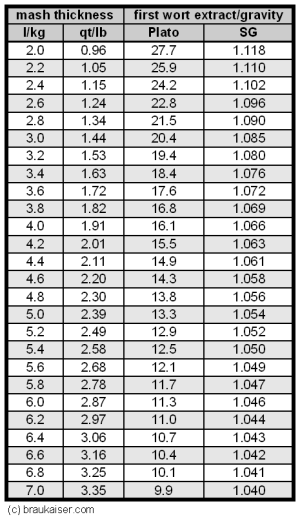RedBeardBrewer
Member
- Joined
- Feb 20, 2006
- Messages
- 15
- Reaction score
- 0
Well actually it's brewer = fail, but I need some help to fix this.
I brewed with my newly built RIMS system today (also my first all-grain experience). Things didn't go well I ended up with a 32% efficiency.
I had 12lbs. of grain and I was circulating roughly 9 gallons of 158* water continuously through the mash tun for about 90 minutes.
I did not stir at all.
I then increased temp up to 168* for a few minutes and continued circulating.
I then transferred the entire volume to the brew kettle and went to work on the boil.
1) Even though the pre-boil was supposed to be roughly 9 gallons was running that much water through mash bad?
2) Should I have slowly worked the temperature up to dough-in? I didn't add grains until the water temp was up to 158*
3) Should I be circulating continuously or should I be taking pauses?
4) Did I do anything right here?
I brewed with my newly built RIMS system today (also my first all-grain experience). Things didn't go well I ended up with a 32% efficiency.
I had 12lbs. of grain and I was circulating roughly 9 gallons of 158* water continuously through the mash tun for about 90 minutes.
I did not stir at all.
I then increased temp up to 168* for a few minutes and continued circulating.
I then transferred the entire volume to the brew kettle and went to work on the boil.
1) Even though the pre-boil was supposed to be roughly 9 gallons was running that much water through mash bad?
2) Should I have slowly worked the temperature up to dough-in? I didn't add grains until the water temp was up to 158*
3) Should I be circulating continuously or should I be taking pauses?
4) Did I do anything right here?



